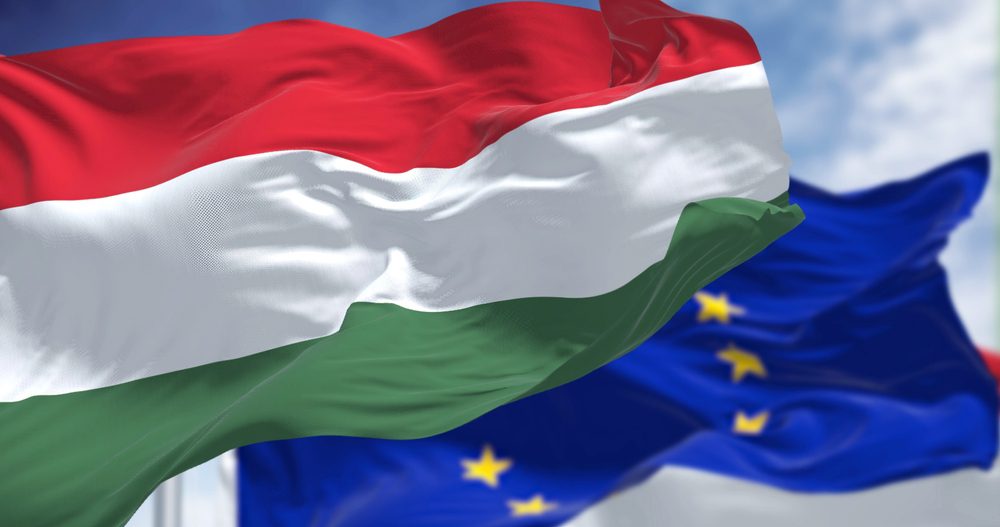
In an unprecedented move, the European Parliament, which is today overwhelmingly controlled by globalist politicians and their political groupings, is attempting to lay the political and legislative groundwork to prevent Hungary from assuming the EU Council presidency next year.
At the next plenary session of the European Parliament, scheduled for Thursday, June 1st, the European Union’s lawmaking body, whose reputation remains questionable over the ongoing Qatargate corruption scandal, is poised to adopt a draft resolution concerning, among other things, the state of the rule of law in Hungary.
The draft of the five-party resolution proposal, seen by and reported on by the Hungarian left-wing news outlet Népszava, attempts to cast significant doubt whether Hungary can “credibly” hold the EU Council presidency in 2024, claiming that it has violated the bloc’s “core values” and has failed to cooperate with fellow member states.
The draft resolution, prepared by the Left, S&D, Renew, the Greens, and EPP parliamentary groupings, urges the European Council to find a solution to the “problem,” stating that otherwise, the parliament will be forced to take action itself.
In the parliamentary text’s initial draft, EU lawmakers claim that the rule of law and fundamental rights have progressively deteriorated under Prime Minister Viktor Orbán’s government, which the Hungarian population has voted for four consecutive four-year terms.
The radical move represents the first time the European Parliament has sought to block an EU government—in this case, the democratically elected government of Hungary—from assuming the presidency of the Council of the EU, which acts as the decision-making body of the 27-member bloc.
The presidency of the Council, the EU body which defines the general political direction and priorities of the bloc, rotates among the EU member states every six months. During this six-month period, the presidency chairs meetings at every level in the Council, coordinating the institution’s legislative activities, representing the Council in its relations with other EU bodies, and working to ensure the continuity of the EU’s work in the Council. At the moment, Sweden holds the presidency of the Council.
Responding to the news, the Hungarian Justice Minister Judit Varga wrote on social media:
The decision on who will hold the rotating presidency of the Council of the European Union was taken by unanimous decision of the Council. The European Parliament was not dealt a hand on this issue. Of those who were dealt a hand, no one thought that Hungary should not take up its rightful post. We are in daily contact with the General Secretariat of the Council, and we are preparing for the task.
The EU presidency is an excellent opportunity not only to make our country and its position even better known in the member states of the European Union, but also to shape the future of Europe. In this context, the Hungarian presidency will have three main priorities: demography, competitiveness, and the future of cohesion policy.
Varga emphatically stated: “We will not let such an opportunity be taken away from Hungary!”
State Secretary for International Communication, Zoltan Kovacs, reacted by saying on Twitter:
The European Parliament is targeting Hungary once more, this time to prevent us from assuming the EU presidency in the second half of 2024.
Their justification is the same old, tired charge that Hungary violates the EU’s basic principles and is hence unable to hold the presidency.
But we know the actual reason: they dislike Hungary’s pro-peace stance and seek to drive us into conflict.
But the Hungarian government is not capitulating to pressure, and we remain firm in our stance. This has been obvious since the beginning of the war: Hungary is asking for peace and an immediate end of hostilities since it is the only way to preserve human lives.
➡️The European Parliament is targeting Hungary once more, this time to prevent us from assuming the EU presidency in the second half of 2024.
— Zoltan Kovacs (@zoltanspox) May 25, 2023
😴Their justification is the same old, tired charge that Hungary violates the EU's basic principles and is hence unable to hold the… pic.twitter.com/AaO9WL7zRZ
Hungary first held the presidency of the Council in the first six months of 2011, eight years after its accession into the Union, and during Prime Minister Viktor Orbán’s second term leading the Hungarian government. If the globalist factions within the European Parliament are unsuccessful in their endeavor to block Orbán’s government from assuming the EU presidency, its six month term is set to begin in July of next year.
